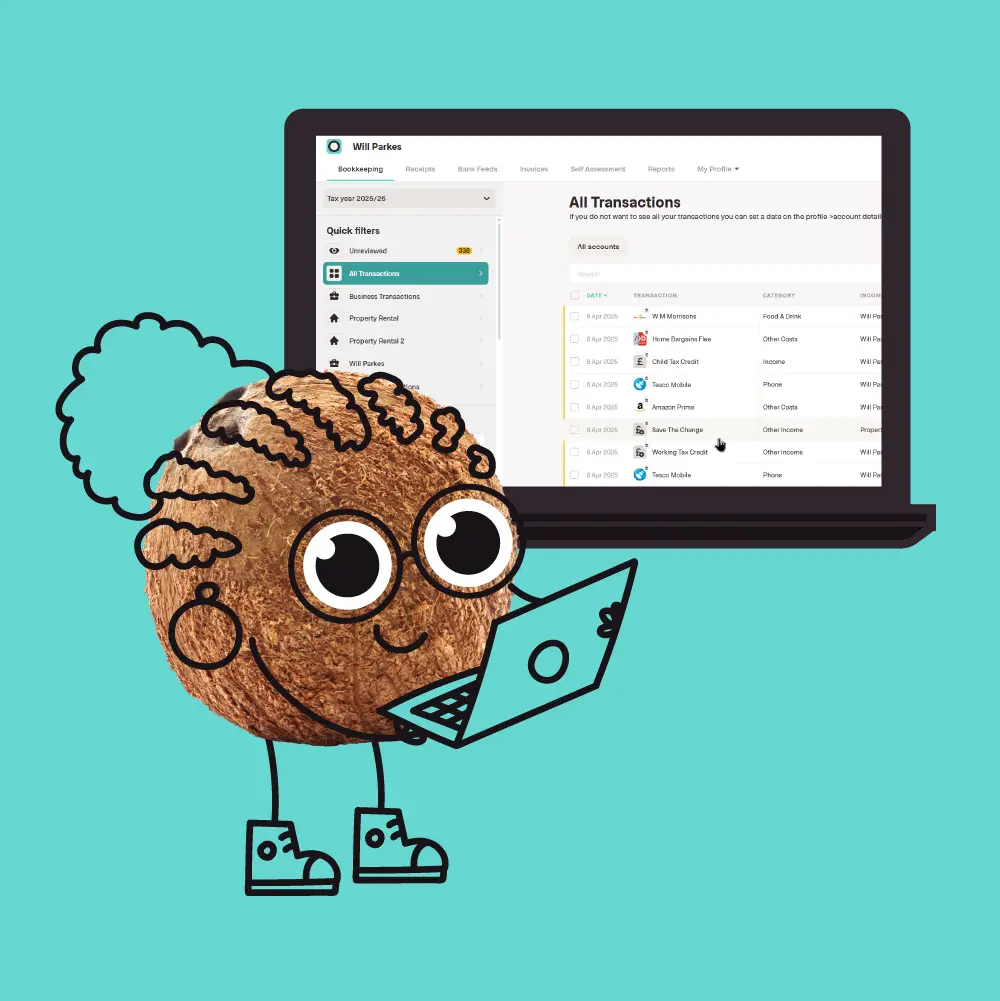The phrase “freelancer mortgages” puts the fear of God into me.I don’t know whether it’s the deluge of paperwork, finding self employed mortgage lenders or just the fear of the unknown. It just seems that applying for freelancer mortgages adds another layer of complexity to an already confusing and stressful process. It’s made me question, can I ever own a home as a freelancer?With two house moves and multiple mortgages and remortgages under my belt, I have a pretty good level of experience when it comes to the application process.But this was during my time as a “proper” full-time employee, and I recently took the plunge to freelance on a full-time basis. So, can I get a mortgage as a freelancer?It would appear so.The good news is that the process is pretty much the same for full-time employees as it is for freelancers. There’s a ton of paperwork and jumping through hoops. Once your freelancer mortgage is approved, you’ll have access to the same rates and incentives as everyone else.The bad news is that you’ll probably have to file a lot more paperwork and understand a few more of the weird and wonderful inconsistencies between the self-employed mortgage lenders. And, depending on how long you’ve been in business, you may not get access to all of the lenders and mortgage deals out there.
Don’t Panic
When the Financial Conduct Authority’s 2014 Mortgage Market Review came into place, lenders could now assess your ability to make your mortgage repayments based on both your income and your expenses. So how can you prove this point when you don’t have a regular income? Or a year’s worth of pay slips?Well, it doesn’t change the mortgage application process that much, as Sarah Davidson, mortgage reporter from This Is Money, explained: “Freelancers can have variable income each month depending on the level of work they get. It’s not more complicated – you will just need to provide slightly different information from a full-time employed borrower.”It all comes down to proving you can afford the mortgage you are applying for. Hannah Maundrell, editor in chief at money.co.uk, said: “For freelancers that generally means sharing your accounts, tax returns or SA302s with prospective lenders.” A SA302 form provides details on all of your earnings declared to HMRC over the last three years. Freelancers operating either as a sole trader, partnership or limited company for the last three years should all have a SA302 – making it a solid proof of income for lenders.Maundrell added: “You’re also likely to be asked for details of the work you have booked in and could even be asked to show your business plan. Lenders use this as reassurance you’re still going to have money coming in.”Phew. Problem resolved?Not quite. Freelancers can still face a range of issues. For example, for interest only mortgages, you only pay back the interest on your mortgage, as opposed to reducing the overall debt. This requires detailed repayment plans. Adam Waters, senior policy adviser at IPSE, explained: “This can be particularly difficult for freelancers as they, because of the project based nature of their work, have fluctuating incomes and therefore estimating projected income can be problematic.”Such hurdles have greatly affected the confidence of the self-employed in securing a mortgage. An IPSE survey of its members found that 45 per cent of freelancers think mortgage providers don’t want them as customers and 38 per cent of freelancers believe they could not get a mortgage if they wanted one.Luckily, this is not the reality and an increasing number of freelancer mortgages are available. The freelancer versus full-timer divide is also not prevalent, as Shaun Church, director at mortgage brokers Private Finance, explained: “Freelancers have to meet the same criteria as permanent employees when applying for a mortgage. Whether you work as a limited company, sole trader or in a partnership, you are employed just as everyone else is – the only difference is that you are self-employed.”While the application process is pretty much the same, the very nature of self employment does mean that self employed mortgage lenders will look at different aspects of your work and finances compared to permanent employees.
Prove Your Track Record
Mortgage lenders want to see a proven track record of success so, in other words, the longer you have worked as a freelancer, the more options you will have when it comes to finding freelancer mortgages as more lenders will be willing to consider your application.Most lenders want to see a minimum of two years’ accounts for a business. While some will consider one year’s worth of accounts, you will probably need to go through a mortgage broker to access these mortgages. Davidson said: “Essentially the lender is looking for the minimum consistent income you can provide evidence for which will illustrate how much you can reasonably afford to repay each month.”This is a particularly sticky point for new freelancers, who are setting up and growing their business. If we take an example here of a freelancer who has filed company accounts for the last three years. In the first year, they made £50,000, in the second, £100,000 and in the third year, they made £150,000.Some mortgage lenders will take the average of these three figures to calculate your average yearly earnings at £100,000. Church said: “ If a permanent employee suddenly gets a promotion and jumps from a £100,000 to a £150,000 annual salary, for example, the lender will use the latter figure. But some mortgage lenders will not extend this logic to freelancers, and instead use the average income figure.”To take into account what you did three years and for this to affect your mortgage application in the here and now is questionable and, often, irrelevant. If I had worked as a freelancer three years ago, for example, I would have been on maternity leave and the resulting nosedive in my income due to these circumstances would not have been representative of my true financial worth.Again, this is not the case for permanent employees. Maternity leave is, quite rightly, taken into account and all you need is a letter from your employer stating that you will and when you will return to work for a mortgage application to be based on your permanent salary.The fact that this is not taken into account for freelancers, in my opinion, seems short-sighted and somewhat unfair.
Research a Range of Self Employed Mortgage Lenders
As with any mortgage application, there are a range of self employed mortgage lenders – and how they assess your business and application varies wildly.For example, some will only look at the amount of money you have taken out of the business. Let’s assume you invoiced £100,000 over one financial year but only took out £30,000 from the business, leaving the remaining £70,000 in the business. I’d assume that a mortgage lender would take the £100,000 figure into account during your mortgage application.And I’m wrong. Some lenders will only base your mortgage application on the £30,000 you took out of the business and will not consider the full £100,000. Logical? No. But it’s something to be aware of.
A Few Tips to Better Your Chances
So, what steps can you take as a freelancer to get the best chance of securing a mortgage?IPSE’s Waters gave this advice: “Ensure your business is stable and profitable for two to three years, do not make any major changes to its structure, and have your accountant provide your accounts before applying. You will also need an SA302 form from HMRC.”“You can also reduce the amount of profit in your business by paying yourself larger dividends to make it easier for lenders to assess your income. If possible, reduce your expenditure in the year before applying to improve your broader financial picture, and save for a larger deposit.”“Depending on how confident you are in your businesses, apply for a fixed term rate mortgage so you can budget accordingly if interest rates increase. Target lenders that offer some forms of flexibility, for example those that offer the ability to increase payments or take payment holidays, to account for fluctuations income,” Waters added.It could also help to get an accountant in on your plans to buy a property, as Maundrell explained: “They can help structure your tax affairs in an (entirely legal) way that makes you more attractive to a lender. This is important because they’ll usually try to minimise your taxable income, but this can work against you when you’re applying for a mortgage because it looks to a lender like you’re earning less.”
Consider a Specialist Broker for Freelancer Mortgages
If you’re hunting for freelancer mortgages, it’s worth investing in a specialist freelance mortgage broker. There are lots of options for self-employed borrowers with many specialist lenders now pitching specifically for their custom. Davidson said: “A good mortgage broker will have access to a much wider selection of mortgage deals than you can access online or through a branch directly as many of these specialists don’t have direct relationships with borrowers like the high street banks.”This range of freelance mortgage lenders can also aid the freelancer mortgage application process, as Rob Starr, CEO of Crunch Mortgages, explained: “It could even be said that it is slightly easier as there are specific lenders that are very strong in this area and they tend to be much more specific in their requirements.”Increased competition from challenger banks, such as Metro bank, and regional building societies are also breeding innovation in the freelancer mortgage market, which could make mortgages more accessible to freelancers, as Church added: “Interest rates are at an all time low. Lenders cannot reduce them any further or their mortgages will not be profitable. So, we may start to see lenders lessening the criteria for freelancers to get more people borrowing from them.”This could have a knock-on effect and open up more mortgages from mainstream providers to the freelancer community.It’s a much-needed change.Published in February 2016, the Government commissioned Deane Review into self-employment recognised that being self-employed caused ‘significant difficulties’ when applying for a mortgage. Waters said: “While recognising the prudential regulatory limits on what lenders can do, IPSE agrees the self-employed need more flexibility from mortgage providers in terms of payment holidays and interest only periods and calls on Government to do more to support this growing group.”An IPSE survey found 61 per cent of freelancers think mortgages advisors do not understand their financial situation. “Lenders should learn more about the working practices of the self-employed and how they are paid,” Waters added.So, can I get a mortgage as a freelancer? Yes.Will it be easy? No.But that’s not an exclusive issue for the freelancer demographic. The phrase “mortgage application” puts the fear of God into everyone.











